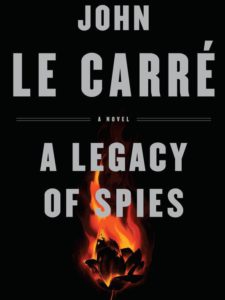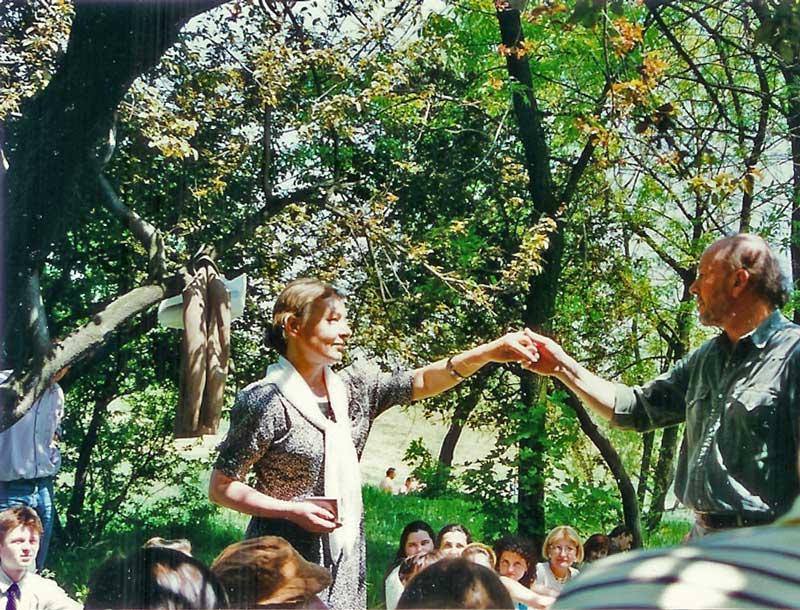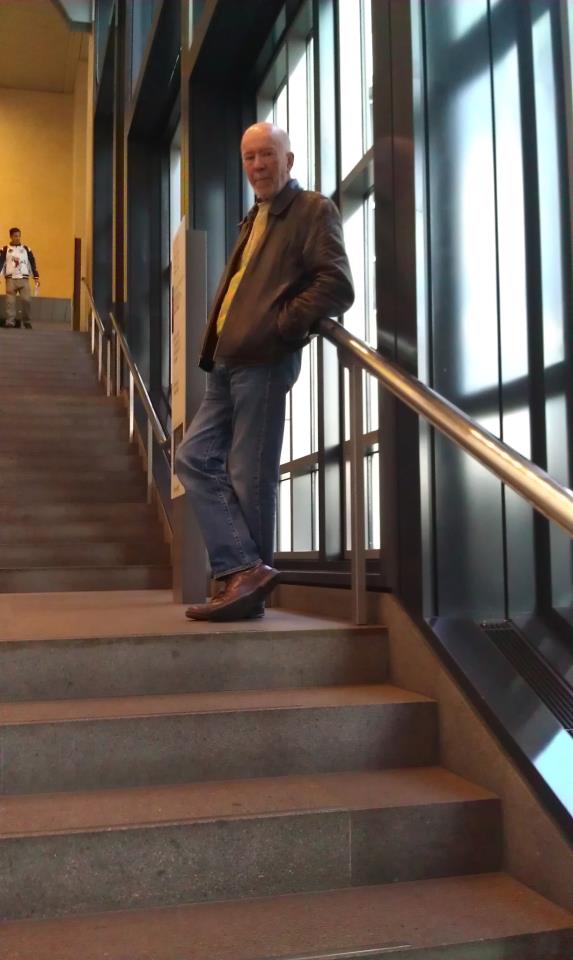George Smiley is back. And he’s all about Trump and Brexit.
Tuesday, September 5th, 2017 You thought British spy George Smiley was gone for good? He’s back in John le Carré’s brand new novel, A Legacy of Spies. And though you may be calculating Smiley’s age, on the basis of Tinker Tailor Soldier Spy and the other novels, to be somewhere around a century, he’s just about the same age as David Cornwall – a.k.a. John le Carré – which is to say, 86 next month. Bryan Appleyard has a new article and interview about Le Carré in The Times of London.
You thought British spy George Smiley was gone for good? He’s back in John le Carré’s brand new novel, A Legacy of Spies. And though you may be calculating Smiley’s age, on the basis of Tinker Tailor Soldier Spy and the other novels, to be somewhere around a century, he’s just about the same age as David Cornwall – a.k.a. John le Carré – which is to say, 86 next month. Bryan Appleyard has a new article and interview about Le Carré in The Times of London.
A Legacy of Spies is a Brexit novel, according to Le Carré, a former spook himself: “I wrote it in a bit of a frenzy through Trump and Brexit. I despise the whole Brexit operation, as Smiley does. One government after another blamed Europe for its own failures because they never invested in the concept of a united Europe.”

He’s fed up.
“I understand why people who are socially deprived, with the safety net taken away from them and treated as second-class citizens, have every right to vote for some other dream. I understand that, and I understand it needs a desperate remedy, and fast, but Brexit isn’t the answer.”
About the book, which brings together characters from previous novels, including Alec Leamas and his lover, Liz Gold:
In A Legacy, the past returns thanks to a legal action brought against MI6 over the events surrounding the deaths of Leamas and Gold. Public exposure threatens the now glitzy, tight-suited inhabitants of “Spyland Beside the Thames”, the agency’s “shockingly ostentatious new headquarters” in Vauxhall. Peter Guillam, once Smiley’s deputy, is called back from retirement (though there is no such thing in MI6).
Revealing anything more would be a spoiler, but I think I can say this: Smiley moves in and out of the action in the past before, finally, appearing in the present. Guillam asks him what all their work had been for. England? No. Europe.
“I think his whole genesis in life — his private dream, as he now expresses it — is the salvation of Europe. That was, for him, the battlefront of the Cold War — for him, that was where the soul of Europe was being fought for. So, when he looks back on it all — or I do, if you like — he sees futility.”

My hearthrob
In the words of Anatole Broyard, writing in the New York Times way back in 1982 about Le Carré’s novel, “Western civilization is depicted as the residue of countless betrayals, as a kind of junk sculpture of discarded ideals. Its governments are so jaded that they can be animated or stirred only by what we might call the pornography of conspiracy.” Well, it’s still true, isn’t it?
Cornwall says that Smiley has always been his “secret sharer”, “an unannounced companion with whom I am sharing the experience, an imaginary figure … I suppose what Smiley and I have in common is that we find it difficult to remember happiness. It’s not something that comes naturally to me, I have to work on it. I do experience fulfilment with my children and my grandchildren.”
After all, none of this is just about spying. “I perceived,” he said at one point, “in the real world a reflection of the secret world.” We are all Alec Leamas or Bill Haydon, and, like Cornwell, some of us are Smiley — always secretive, always on call.
Read the whole thing here. And here’s why we love him (we’re not sure whether we love Smiley or Guinness, or both). “Reason is logic or reason is motive, or reason is a way of life…”



